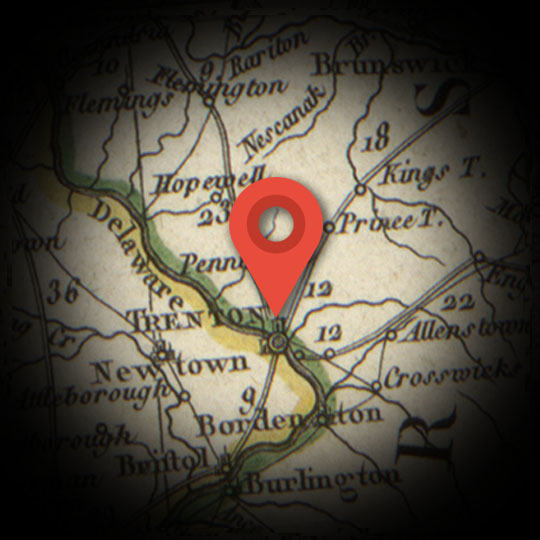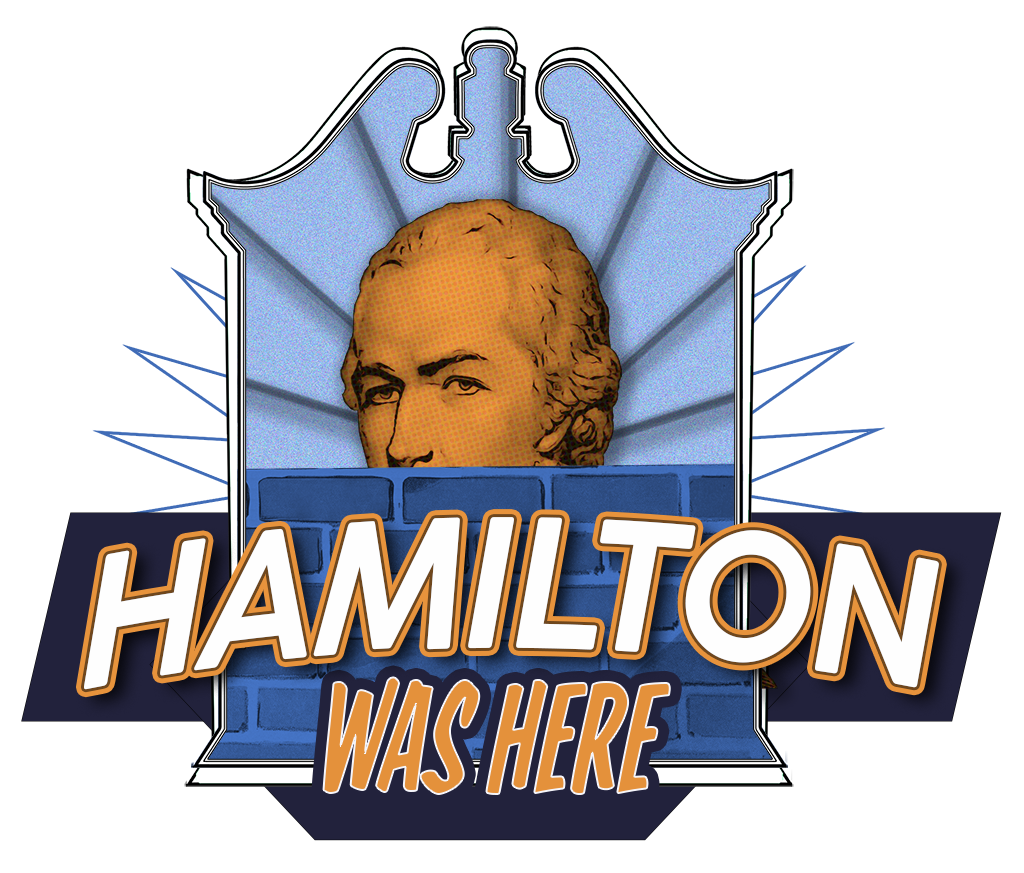TRENTON
Explore
In late December 1776, the prospects of the American Revolution were dim indeed.
Alexander Hamilton—not yet George Washington’s aide—had watched Redcoats decisively take New York City. The British had gone on to chase Washington’s retreating army all the way across what many at the time still referred to as “The Jerseys.” (New Jersey used to be divided into East and West colonies). Hamilton had played heroic bit parts all throughout the Long Retreat. But by Christmas, he was down for the count with illness.
Facing utter devastation, Washington staked it all on a perilous gambit to attack to a garrison of fearsome Hessian auxiliaries (British allies from what is now a united Germany). The Hessians had been stationed in Trenton, New Jersey, for the purpose of keeping the conquered land under British control during the winter.
The day of the attack, Hamilton roused from his sick bed and took the head of his small group of New York artillery. They crossed the ice-strewn river and, at 3 am, were told to march 8 miles to Trenton.
In a heavy snow, Hamilton arrived in what was then a tiny village and was ordered to set up his artillery to cover one of its two streets.
The surprised Hessians, drowsy and hung over (it was, after all, the day after Christmas), struggled to rouse themselves into an organized defensive force.
Hamilton had his men fire on detachments of enemy soldiers that began to appear. He pounded a swiftly-appearing Hessian artillery battery with grapeshot. Those who were still standing after that punishment ran. The Hessians surrendered. For the American patriots it was a glorious victory after a stultifying string of defeats.
Sundry professional and private concerns would have Hamilton returning to Trenton on occasion. He was here in 1792 on Department of Treasury business, and in 1798 and 1799 during his brief stint as Major General of the Army. This was in the buildup to a war with France that never fully materialized. In the late summer and early fall of 1799, a Yellow Fever outbreak effectively shut Philadelphia down, and government offices were moved temporarily to Trenton.
Additionally. Hamilton’s sons Philip and Alexander Jr. both studied in Trenton under William Frazier of St. Michael’s Church, and their father almost certainly both visited and transported them to or from here.

TIME FRAME:
1776, 1792, 1798-99
